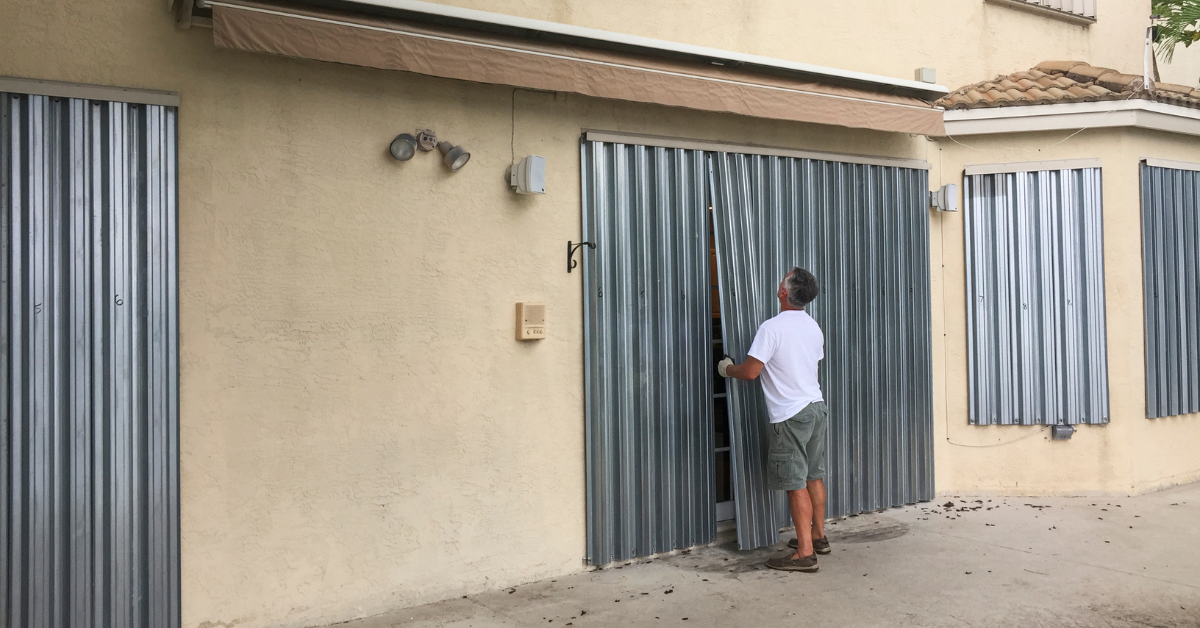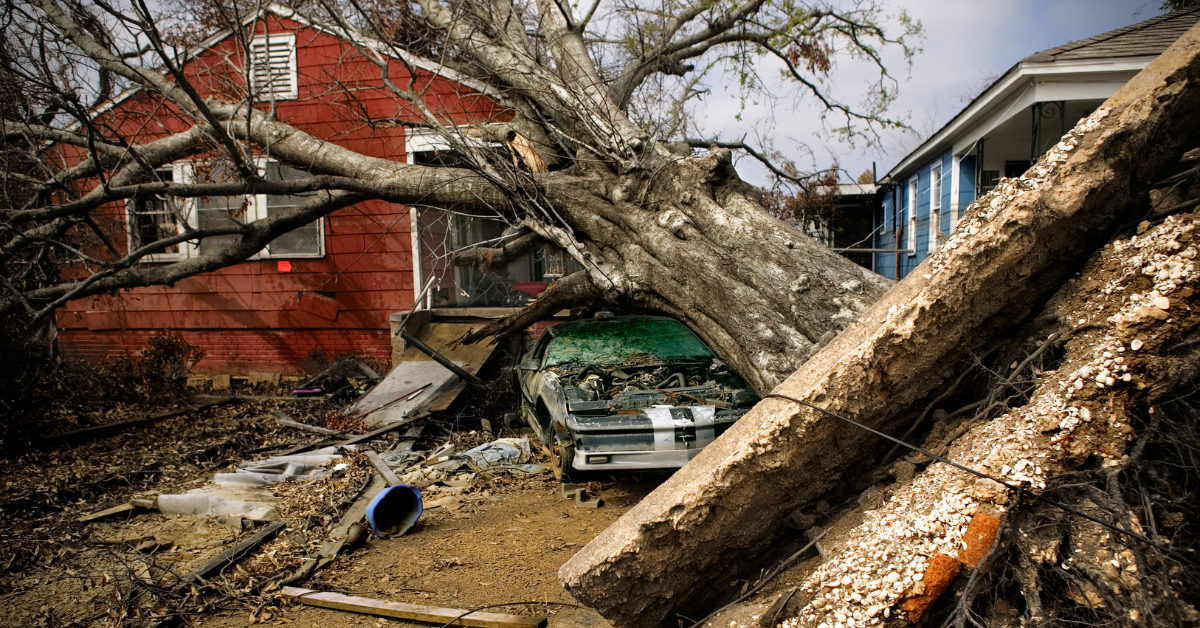Living in an area prone to hurricanes can be stressful, but being prepared is critical to ensuring your safety and protecting your property. This article will share some essential tips on how to prepare for a hurricane.
Preparing for a hurricane can seem overwhelming, but with the right knowledge and steps, you can ensure the safety of yourself and your loved ones. Being proactive can make a difference when faced with hurricanes’ severe weather conditions.
What Is a Hurricane, And Why Is It Important to Prepare?
A hurricane is a powerful tropical cyclone with winds of at least 74 miles per hour. They can cause widespread destruction, including strong winds, heavy rain, storm surges, and flooding. Preparing for a storm is crucial because it allows you to take necessary precautions and minimize potential damage or harm.
Create an Emergency Plan: Start by developing an emergency plan that includes evacuation routes, communication strategies, and meeting points for family members. Ensure everyone knows what to do in case of an emergency.
Stock Up on Supplies: It’s essential to have an emergency kit stocked with non-perishable food, water, medications, flashlights, batteries, first aid supplies, and important documents. Aim to have enough supplies to sustain you and your family for at least three days.
Secure Your Property: Protect your property by installing hurricane shutters or boarding windows. Trim trees and secure loose outdoor items that could potentially become projectiles during high winds.
Preparation Against Flooding:
- Elevate appliances and valuable items off the ground floor if possible.
- Disconnect electrical appliances but avoid touching them if you’re wet or standing in water.
- Clear gutters and drains to prevent blockages.
- If you have sandbags, place them around entry points to prevent water ingress.
Stay Informed: Monitor the weather forecast through trusted sources and listen to local authorities for updates and evacuation orders. Stay tuned to emergency alerts on TV or radio.
Remember, early preparation is key to staying safe during a storm. By following these tips, you can ensure you are well-equipped and ready to face any challenges a hurricane may bring.
Understanding Hurricane Categories
When it comes to hurricane preparedness, knowledge is power. Understanding the different categories of hurricanes and how they can impact your area is crucial for effectively preparing and staying safe. Here’s a breakdown of what you need to know:

Differentiating Between Hurricane Categories And Their Potential Impact
Category 1
These hurricanes are the least severe, with winds ranging from 74 to 95 mph. While they can still cause damage, it is typically minimal, such as power outages and fallen trees.
Category 2
Winds in Category 2 range from 96 to 110 mph. These storms can cause extensive damage, including roof damage, uprooted trees, and power outages that may last for days.
Category 3
With winds ranging from 111 to 129 mph, Category 3 hurricanes are considered major hurricanes. They can cause significant damage, with the potential for structural damage to buildings, severe power outages, and flooding.
Category 4
Winds in Category 4 range from 130 to 156 mph. These storms can cause catastrophic damage, including extensive damage to buildings and infrastructure, prolonged power outages, and widespread flooding.
Category 5
The most severe hurricanes fall into this category, with winds exceeding 157 mph. Category 5 hurricanes can cause complete destruction of buildings, massive power outages that can last for weeks, and devastating storm surges.
Understanding the potential impact of each category will help you make informed decisions when preparing for a hurricane. Stay tuned to local news and follow the guidance of emergency officials to ensure your safety during these dangerous storms.
Creating an Emergency Plan
Living in an area prone to hurricanes can be unnerving, but being well-prepared can make a world of difference when disaster strikes. Here are some steps to develop a comprehensive emergency plan for your family.
Steps to Develop a Emergency Plan for Your Family
1. Determine Evacuation Routes: Find out the designated evacuation routes in your area and establish a plan for how you will evacuate if necessary. Create a map and make sure everyone in your family knows the plan.
2. Stock Up on Supplies: Have an emergency kit ready with essential supplies, including non-perishable food, water, flashlights, batteries, first aid supplies, and important documents.
3. Establish Communication Channels: Create a communication plan to stay connected with your family during the hurricane. Share contact information and decide on a meeting point in case you get separated.
4. Secure Your Home: Prepare your home by securing windows and doors, trimming trees, and cleaning gutters. Consider installing storm shutters and reinforcing your garage doors.
5. Stay Informed: Stay tuned to local authorities and follow their instructions during the hurricane. Keep a battery-powered radio or smartphone handy to receive updates.
Remember, preparation ensures the safety of you and your loved ones during a hurricane. Take these steps to be well-prepared and reduce stress when faced with an impending storm.
Stocking Essential Supplies
Living in an area prone to hurricanes can be nerve-wracking, but preparing in advance can help ease the stress when those strong winds start to blow. Here is a checklist of necessary items to have on hand during a hurricane:
A Checklist of Necessary Items to Have on Hand During a Hurricane
Water
Stock up on at least one gallon of water per person daily for at least three days. Having enough water for drinking, cooking, and personal hygiene is essential.
Non-Perishable Food
Store enough non-perishable food for three to five days. Canned Goods, dry cereals, and Energy Bars are good options. Don’t forget a manual can opener!
Flashlights and Batteries
Make sure you have several flashlights and enough batteries to power them for several days. This will provide essential lighting during power outages.
First Aid Kit
Keep a well-stocked first aid kit that includes bandages, antiseptic wipes, pain medication, and any necessary prescription medications.
Portable Phone Charger
Invest in a portable phone charger or power bank to keep your devices powered up in case of power disruptions.
Extra Clothing and Blankets
Have extra clothing and blankets available in case you need to stay warm or change into dry clothes.
Cash
Keep some cash on hand in case ATMs and credit card machines are not operating during the storm.
For more necessary items to prepare check out our Prepping List or our recommended Bug Out Bags and always be prepared to evacuate your home.
With these essential supplies ready, you’ll be better equipped to handle any challenges during a storm.
Stay safe!
Securing Your Home
Preparing for a hurricane can be daunting, but with careful planning and precautions, you can safeguard your home and family during the storm. Here are some essential tips for protecting your property from hurricane damage.

Tips For Protecting Your Property From Damage
Board Up Windows
Covering windows with plywood or storm shutters can help prevent damage from flying debris during high winds.
Secure Outdoor Items
Bring in or secure outdoor furniture, grills, and other objects that could become projectiles in strong winds.
Trim Trees and Shrubs
Prune trees and shrubs near your home to reduce the risk of them falling onto your property during a storm.
Clear Gutters and Drains
Ensure that gutters and drains are clear of debris to prevent water buildup and potential flooding.
Place Sandbags
If you have sandbags, place them around entry points to prevent water ingress.
Install Surge Protectors
Protect electronic devices by installing surge protectors or unplugging them before the storm to avoid damage from power surges.
Back-Up Important Documents
Make digital copies of important documents such as insurance policies, identification, and personal records, and store them securely online.
Create an Emergency Kit
Assemble an emergency kit with essential supplies such as water, non-perishable food, flashlights, batteries, first aid supplies, and medications.
The key to staying safe during a hurricane is preparedness.
Stay informed about weather updates and follow the instructions of local authorities. By taking these precautions, you can minimize potential damage to your property and ensure the safety of yourself and your loved ones.
Evacuation Planning
Hurricanes can be unpredictable and dangerous. It’s crucial to have a solid evacuation plan to ensure your safety and the safety of your loved ones.
Guidelines To Decide When And How To Evacuate
Stay informed
Keep an eye on local weather updates and listen to official instructions from authorities. The sooner you know about an approaching hurricane, the more time you’ll have to prepare and make decisions.
Know your evacuation zone
Familiarize yourself with the evacuation zones in your area. These zones are determined based on the level of risk posed by the hurricane. If you live in an evacuation zone, be ready to move when instructed.
Plan ahead
Create a Bug Out Bag and make a list of essential items you’ll need to take with you, such as food, water, medication, important documents, cash, and clothing. Have a designated meeting place for your family in case you get separated.
Have a reliable mode of transportation
Ensure your vehicle is well-maintained and ready for use in case of an evacuation. If you don’t have a car or cannot drive, make arrangements for alternative transportation.
Follow evacuation orders
When authorities issue evacuation orders, take them seriously. Ignoring these orders puts your life at risk and burdens emergency responders more.
Remember, it’s better to err on the side of caution regarding storms. By preparing in advance and following official instructions, you can help ensure the safety of yourself and those around you. Stay safe!
Staying Informed
Living in a region prone to hurricanes can be daunting, but preparation can do much for your safety. Here are some essential steps I take to stay informed and ready when a hurricane is approaching.
Utilizing reliable sources of information during a hurricane
Local authorities
Stay tuned to local news and official channels such as the National Weather Service for the latest updates on the storm’s path and intensity. They provide valuable insights into evacuation orders, shelter locations, and safety precautions.
Weather apps
Download reputable weather apps like The Weather Channel or AccuWeather that offer real-time alerts, storm tracking, and hourly forecasts. These apps can help you stay informed about the storm’s trajectory and any potential threats.
Social media
Follow trusted weather forecasters on platforms like Twitter and Facebook. Many meteorologists share timely updates and important information during hurricanes. Be cautious of rumors or unverified information shared by individuals without credentials.
Emergency alerts
Ensure you have enabled emergency alerts on your mobile phone. These notifications will notify you of severe weather conditions, evacuation orders, or other critical information in your area.
Staying informed is crucial, but acting on the information you receive is equally important.
Follow instructions from local authorities, prepare an emergency kit with essential supplies, secure your home, and evacuate if necessary.
By taking these steps, you’ll be better equipped to handle a hurricane and keep yourself and your loved ones safe. Stay vigilant!
Taking Care of Pets and Animals
Preparing for a hurricane involves taking care of ourselves and our homes and considering our furry friends’ well-being. Pets and animals are part of our family, and ensuring their safety is crucial during such weather events.

Precautions And Preparations For Your Furry Friends
Identification and Microchipping
Ensure that your pets have identification tags with updated contact information. Consider microchipping them for added security in case they get lost during the chaos of a hurricane.
Evacuation Plan
Research pet-friendly shelters or hotels in your area and be familiar with their requirements. Keep a list of these locations and emergency contacts in your disaster preparedness kit.
Emergency Supplies
Stock up on essential pet supplies, including food, water, medication, and any necessary equipment your pet needs. Have enough supplies to last at least a week if you cannot leave your home for an extended period.
Safe Shelter
Create a safe space for your pets inside your home. Choose a room with no windows or a basement. Provide comfortable bedding, toys, and familiar scents to help reduce anxiety during the storm.,
Bring Them Indoors
Never leave your pets outside during a hurricane. They can quickly become disoriented, injured, or even escape due to fear. Keep them indoors and close their access points to prevent accidents.
Our pets are part of our family, so prepare to keep them safe too. By considering their needs alongside ours, we can ensure that all family members stay protected throughout the storm.
Staying Safe After The Hurricane
If you’re reading this section, you may have just experienced a hurricane, and I hope you and your loved ones are safe!
Steps to take in the aftermath of a hurricane for safety and recovery
Now that the storm has passed taking the necessary steps to ensure your safety and start the recovery process is important.

Here are some tips to help you out:
- Stay Alert: Although the hurricane has subsided, there may still be dangers such as flooding, fallen power lines, or debris. Be cautious when venturing outside and follow any instructions from authorities.
- Assess the Damage: Take a walk around your property to check for any structural damage or signs of hazards. If you notice any significant issues, contact the appropriate professionals for assistance.
- Document Everything: It’s crucial to document the damage to your property for insurance purposes. Take photos or videos of the affected areas before cleaning or repairing them.
- Contact Your Insurance Provider: Reach out to your insurance company immediately to report any damage and start the claims process. They will guide you through the necessary steps to get compensation.
- Start Cleanup: Once you’ve ensured your safety, clean up debris and remove any standing water to prevent further damage or health risks.
- Seek Professional Help: If necessary, hire professionals to handle repairs or restoration services. They have the expertise and equipment needed to address specific issues caused by the hurricane.
Watch out. Recovery takes time, so be patient and care for yourself and others.
Together, we will overcome this challenging time and rebuild stronger than ever before!
FAQ How To Prepare For a Hurricane
Should I evacuate if there is a hurricane warning?
If local authorities issue an evacuation order, it’s crucial to follow it. Your safety should be your top priority.
How long in advance should I start preparing for a hurricane?
It’s best to start preparing as soon as possible, ideally before hurricane season begins. This ensures you have enough time to gather supplies and develop an effective plan.
Summary for Safety in Extreme Weather Conditions
Stay Informed: Sign up for local alerts and stay updated on the latest news regarding hurricanes in your area. This will help you stay one step ahead and make informed decisions regarding your safety.
Create a Plan: Develop an emergency plan that includes evacuation routes, a communication strategy, and gathering essential supplies. Ensure everyone in your household is aware of the plan and knows what to do in an emergency.
Stock Up on Supplies: Prepare an emergency kit with essentials like water, non-perishable food, medications, flashlights, batteries, and a first aid kit. Having these supplies readily available can lessen stress during a hurricane.
Secure Your Property: Take precautions to protect your property by securing loose objects, trimming trees, and reinforcing windows and doors. It’s also a good idea to know where the shut-off valves are for gas, water, and electricity.
By taking these necessary steps before a hurricane hits, you can significantly improve your chances of staying safe and minimizing damage.
Remember to remain vigilant, be informed, and always prioritize your safety.
Good Luck!
